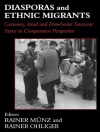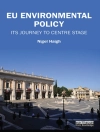Ecological crises threaten all forms of life on earth. Democracy too is endangered, as popular discontent, elite malfeasance, and unresponsive institutions imperil its survival. Present political concepts have proven inadequate to meeting these challenges, and their inadequacies are themselves symptoms of the failures of prevailing political, cultural, and ecological stories and practices.
This book offers a new vision of ecological and participatory democratic life for a time of crisis. Identifying myth and ritual as key resources for contemporary politics, Earthborn Democracy excavates practices and narratives that illustrate the interdependence necessary to inspire ecological renewal. It tells stories of multispecies agency and egalitarian political organization across history, from ancient Mesopotamia and the precolonial Americas to contemporary social movements, emphasizing Indigenous traditions and resistance. Resonating across these practices and stories past and present is a belief that we are all—human as well as nonhuman—earthborn, and this can serve as the basis for reimagining democracy. Allying visionary political theory with environmental activism, Earthborn Democracy provides a foundation and a guide for collective action in pursuit of earthly flourishing.
Spis treści
Introduction: Earthborn(e) Democracy
1. Paths Not Taken: Resonant Histories of Earthborn(e) Democracy
2. The Earthborn(e) Unconscious and Democratic Archetypes
3. Democratic Rituals of Earthly Entanglement
Acknowledgments
Notes
Bibliography
Index
O autorze
Ali Aslam is associate professor of politics at Mount Holyoke College. He is the author of Ordinary Democracy: Sovereignty and Citizenship Beyond the Neoliberal Impasse (2016).David W. Mc Ivor is associate professor of political science at Colorado State University. He is the author of Mourning in America: Race and the Politics of Loss (2016).Joel Alden Schlosser is professor of political science at Bryn Mawr College. His books include Herodotus in the Anthropocene (2020).












